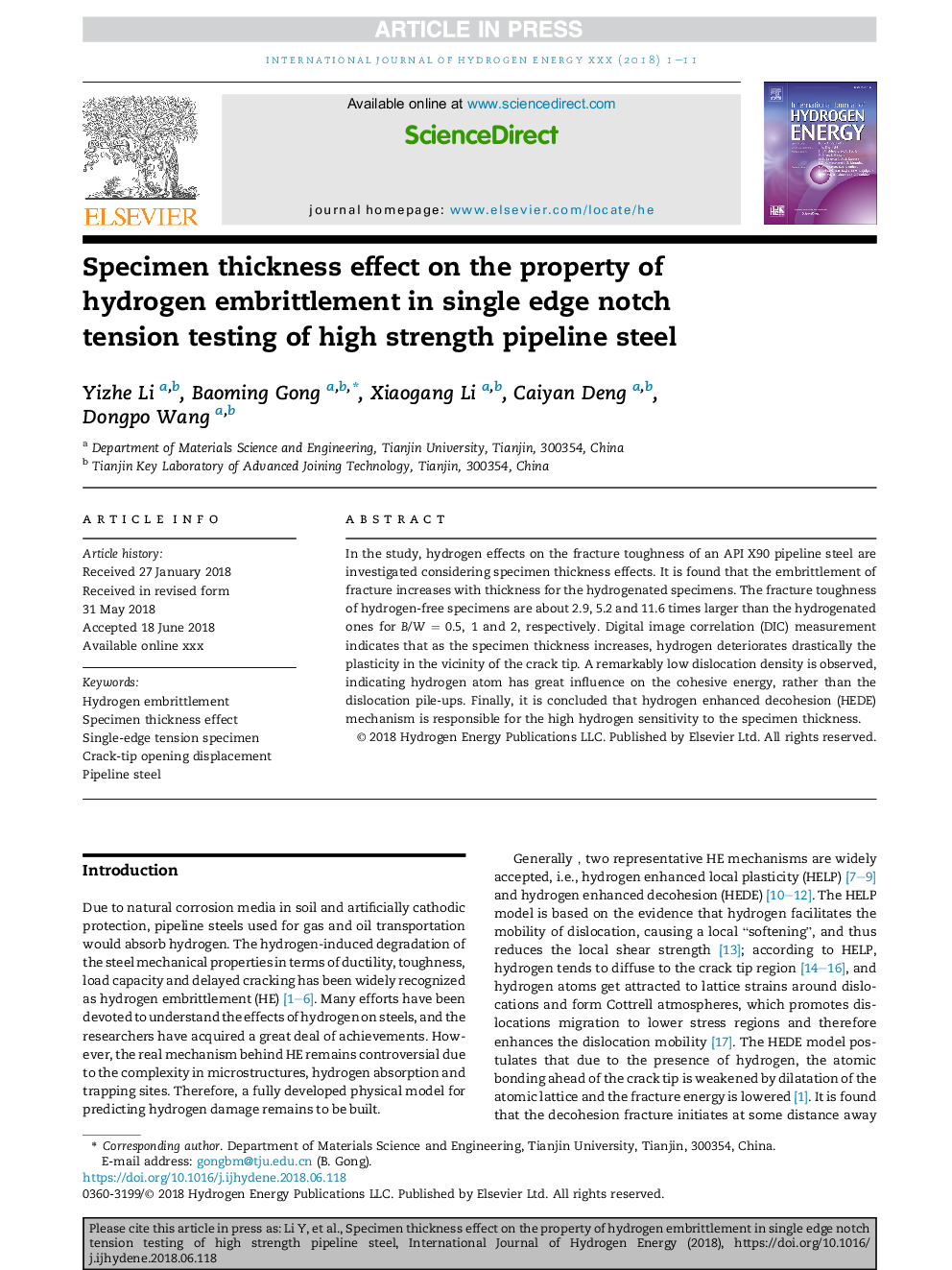| Article ID | Journal | Published Year | Pages | File Type |
|---|---|---|---|---|
| 7705387 | International Journal of Hydrogen Energy | 2018 | 11 Pages |
Abstract
In the study, hydrogen effects on the fracture toughness of an API X90 pipeline steel are investigated considering specimen thickness effects. It is found that the embrittlement of fracture increases with thickness for the hydrogenated specimens. The fracture toughness of hydrogen-free specimens are about 2.9, 5.2 and 11.6 times larger than the hydrogenated ones for B/WÂ =Â 0.5, 1 and 2, respectively. Digital image correlation (DIC) measurement indicates that as the specimen thickness increases, hydrogen deteriorates drastically the plasticity in the vicinity of the crack tip. A remarkably low dislocation density is observed, indicating hydrogen atom has great influence on the cohesive energy, rather than the dislocation pile-ups. Finally, it is concluded that hydrogen enhanced decohesion (HEDE) mechanism is responsible for the high hydrogen sensitivity to the specimen thickness.
Related Topics
Physical Sciences and Engineering
Chemistry
Electrochemistry
Authors
Yizhe Li, Baoming Gong, Xiaogang Li, Caiyan Deng, Dongpo Wang,
